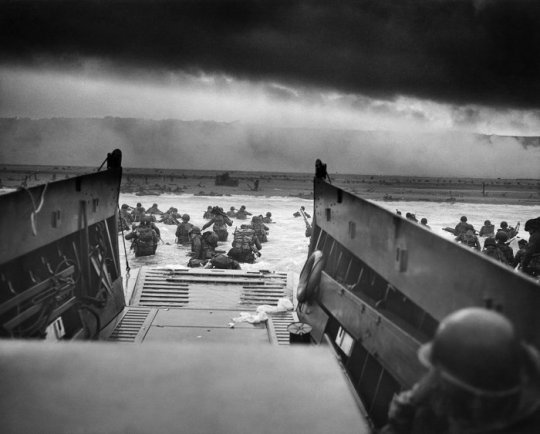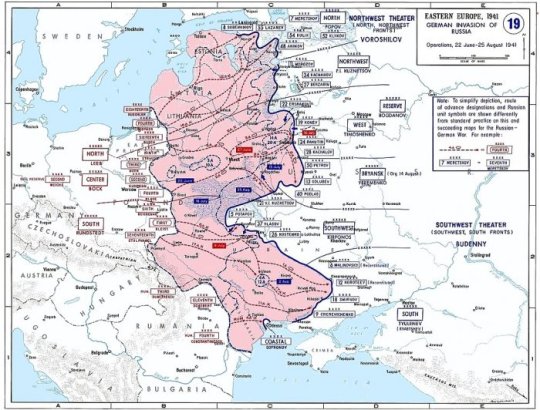Photo

🥰🥰 (at Cox’s Bazar) https://www.instagram.com/p/CkVvu6dp_ll/?igshid=NGJjMDIxMWI=
0 notes
Photo

🥰🥰🥰🥰 (at Bangabandhu Military Museum) https://www.instagram.com/p/Cgjnlk5Jtlh/?igshid=NGJjMDIxMWI=
0 notes
Photo

🥰🥰🥰💔 https://www.instagram.com/p/CgOxVwnJfLj/?igshid=NGJjMDIxMWI=
0 notes
Photo

🥰🥰😒 (at Paharpur Buddis Monastary Naogaon Bangladesh) https://www.instagram.com/p/Cf3DKFMpz8W/?igshid=NGJjMDIxMWI=
0 notes
Photo

😎😎😎😎💔😓🥰 https://www.instagram.com/p/CfmR9aevzqt/?igshid=NGJjMDIxMWI=
0 notes
Photo

😎😎😎😎😎 https://www.instagram.com/p/CfhCNNXJyCL/?igshid=NGJjMDIxMWI=
0 notes
Photo

Water 🥰🥰🥰🥰 (at Sadapathor, Vulagonj, Sylhet) https://www.instagram.com/p/CfbYWtPJQ_J/?igshid=NGJjMDIxMWI=
0 notes
Photo

😊😊😊😊😇 (at Dhaka, Bangladesh) https://www.instagram.com/p/CfUUEshvYiX/?igshid=NGJjMDIxMWI=
0 notes
Photo

🥰🥰🥰🥰 (at Dhaka, Bangladesh) https://www.instagram.com/p/CfHIDASJ_Ef/?igshid=NGJjMDIxMWI=
0 notes
Photo

Atlantic Charter: The Beginning of the Rise of the United States as a Superpower
August, 1941. World War II is going on. All around then the triumph of the Axis Powers. Germany and its junior partner, Italy, were then the masters of the European mainland. The vast expanse of Europe from the Baltic Sea to the Atlantic Ocean was then under the influence of the Axis Powers. France has fallen. The mighty 'Mistress of the Sea' Britain has not yet conceded defeat, but they have been defeated by intense Axis air strikes. Axis forces continue to attack the communist superpower, the Soviet Union. Axis forces are rushing towards Moscow with lightning speed, crushing the famous Red Army. Meanwhile, Japan has occupied a large area of China as well as Indochina. In Africa, the Axis powers are waging a fierce battle with the Allies. Only one major power is still out of the war - the United States.
The United States was the largest economic power in the world at that time. In fact, they became the world's major economic power before the turn of the twentieth century. The devastation in Europe during the First World War strengthened their position. The United States participated in the war at the end of World War I and distanced itself from international politics as much as possible in order to avoid being caught up in the whirlpool of post-war European politics. They maintained neutrality in the early stages even after the outbreak of World War II, but their sympathies were largely with the British and French-led allies.
But by August 1941, 'sympathy' alone was not enough for almost cornered Britain. The British wanted to involve the United States in this war at any cost. By the time France fell, almost the whole of Europe was under the control of the Axis Powers, and the British colonies were in revolt. In this situation, Britain had no choice but to involve the United States directly in the war to avoid defeat. Only the huge industrial and military capabilities of the United States could save Britain.
It is pertinent to note that in September 1940, the United States and Britain signed the 'Destroyer for Base' agreement. Through this agreement, the Americans provided Britain with 50 destroyers and in return the United States gained the right to establish military bases in the British colonies in North America and the Caribbean. This agreement was one of the reasons why Britain was not forced to surrender to the Axis Powers in 1940. The military equipment obtained through this agreement helped Britain to continue the war. But U.S. public opinion was still strongly opposed to participating in the war, so the United States refrained from participating directly in the war. But some U.S. policymakers were in favor of participating in the war because they thought it would open the door to possibilities for the United States.
By August 1941, their idea had taken root. At the time, the Soviet Union was engaged in a deadly struggle against the Axis Powers, and the Allies feared that the Axis Powers would lose. For Britain and the United States, the possible defeat of the Soviet Union was an ominous sign, because if the Soviet Union was defeated, the Axis powers would have the opportunity to seize the vast territory of Eurasia and use it in the fight against Britain (and possibly the United States). In this situation, Britain and the United States decided to strengthen mutual cooperation and to determine what the post-war world would look like if the Allies won the war. The result of this resolution is the 'Atlantic Charter'.
On 9 August 1941, British Prime Minister Winston Churchill arrived in the Gulf of Pleasantia off the southeast coast of Newfoundland aboard the British warship HMS Prince of Wales. He was welcomed at the US Naval Station in Argentina by US President Franklin Roosevelt aboard the USS Augusta. Their interview was kept secret from the whole world. The Americans knew their president was on a 10-day fishing holiday! It should be noted that at that time Newfoundland was a British Dominion (Autonomous Colony), and now it is part of the Canadian province of Newfoundland and Labrador.
From 9 to 12 August, talks were held between Roosevelt and Churchill and top officials from both states. It later became known as the Atlantic Conference. The conference was followed on 14 August by a joint declaration by the President and the Prime Minister, which later became known as the Atlantic Charter. Note that the Atlantic Charter was not a formal treaty, nor was it a treaty signed by anyone. It was the culmination of a series of agreements between the United States and the United Kingdom, which were publicized in the form of declarations and thus gained worldwide recognition. Roosevelt later compared the Atlantic Charter to an unwritten British constitution and commented that the Atlantic Charter did not exist on paper, but everyone knew it existed.
It is pertinent to note that even after the proclamation of the Atlantic Charter, the United States refrained from joining the war directly for several months due to internal political reasons. But it became clear that the United States had linked its destiny with the Allies. On December 6, 1941, three months after the Atlantic Summit, Japan attacked the United States naval and air base at Pearl Harbor, and in response the United States declared war on Japan. Through this the United States became directly involved in World War II, and emerged as an economic and military superpower at the end of World War II. And the Atlantic Charter played an important role in their emergence as a superpower.
The Atlantic Charter outlined the post-World War II world. Note that the Atlantic Charter is not the first 'declaration' in this regard. Earlier, on 12 June 1941, Britain and its four Dominions (Canada, Australia, New Zealand and South Africa), the expatriate governments of six European countries (Belgium, the Netherlands, Luxembourg, Norway, Czechoslovakia, Poland, Yugoslavia and France) The alternative to the German-controlled ‘Vichy France’ (the French government) collectively issued the ‘Declaration of the Palace of St. James’ or the ‘Declaration of London’. Through this declaration, the states pledged to refrain from making peace with the Axis powers separately and to recognize the right of the free nations to voluntarily cooperate with each other. 'Anglo-Soviet Treaty' of 12 July 1941 Was signed and through this agreement Britain and the Soviet Union pledged to refrain from making peace with the Axis powers separately. The 'Atlantic Charter' was a logical extension of this process.
The Atlantic Charter had a total of 6 articles. These are as follows:
(1) The United States and Britain will not claim any land after the war.
(2) The United States and Britain are not interested in seeing a change in ownership of a territory against the will of its inhabitants.
(3) The United States and the United Kingdom respect the right of each nation to choose its own system of government and are keen to return it to the nations whose sovereign rights and sovereignty have been taken away.
(4) The United States and Britain shall endeavor to maintain equal rights in the conduct of trade and procurement of raw materials for each nation, large and small, victorious and victorious in the post-war period.
(5) The United States and the United Kingdom are keen to maintain full economic cooperation among all nations in order to improve the conditions of workers, ensure economic progress and social security.
(6) After the final destruction of Nazism, the United States and Britain are willing to establish a peace that will allow every nation to live safely within its borders and free from fear and poverty.
(6) The United States and Britain are willing to ensure the right to free movement at sea.
(6) The United States and Britain believe that every nation in the world should abandon the use of force and take steps for full disarmament.
From the general point of view, the Atlantic Charter was a declaration that was very ‘noble’ and ‘ethical’. It discourages the practice of resolving political disputes through force and land grabbing. It emphasizes the right of each nation to choose its own system of governance, the right to free trade, the right to form alliances and the right to free movement at sea. At the same time, emphasis has been placed on disarmament, poverty alleviation and economic cooperation.
Apparently the clauses of the charter seem to be very noble. The Atlantic Charter is described as a milestone in history. In general terms, the Atlantic Charter is the landmark treaty that has led to the end of global colonialism and the establishment of the United Nations to establish world peace. But considering the context, the subtle motives of these clauses become clear, and then they can no longer be termed as 'noble motives'.
The most important clause of the Atlantic Charter is the third clause of the treaty. Through it, the United States and Britain recognized the right of nations around the world to self-determination. But the United States and Britain themselves were imperialist powers and they themselves had suppressed the right of different nations to self-determination. Why, then, were they so concerned about the “right of nations to self-determination”?
It should be noted that before the Second World War, Britain was the owner of a huge empire worldwide. In fact, the British Empire was the largest empire in human history. "The sun never sets in the British Empire" - they proudly referred to it. The British deprived the people of present day India, Pakistan, Bangladesh, Myanmar, Malaysia, Ghana, Kenya, Tanzania, Gambia and many other similar states of their 'right to self-determination'. The United States, on the other hand, promoted itself as anti-imperialist, but in practice they themselves were a colonial state. Not only did they seize large tracts of land from North American natives, but they also seized vast tracts of land from Mexico, as well as from the Philippines, Cuba, Puerto Rico, Hawaii, and many other territories.
In this context, the declaration of support for the "right of nations to self-determination" by the US and the British was virtually self-contradictory. But even then the United States and Britain included this clause in the Atlantic Declaration. In fact, at that time, US and British statesmen realized that after World War II, it would no longer be possible for Western European states to retain control of their colonial empires. Nationalist thought spread widely in several colonies, and the successive defeats of other Western European colonial states, including Britain, near the Axis powers at the beginning of World War II intensified the desire for independence in the colonies. On the other hand, the war destroyed the economies and infrastructure of these European nations.
By August 1941, British statesmen had realized that no matter what the outcome of the war, it would not be possible for the British to maintain control over their vast colonial empire with the economy destroyed at the end of the war. Therefore, they decided to withdraw from the most anarchic colonies as soon as possible after the war and to maintain control over the prosperous African colonies and some other strategically important colonies.
Note that in the end, the British had to give up almost their entire colonial empire. But even then the end of the British Empire was relatively peaceful. Other Western European colonial powers could not be as realistic as Britain, so after World War II France became involved in bloody wars in Indochina and Algeria, the Netherlands in Indonesia, and Portugal in southern Africa.
But there was still an important question before Britain - to whom would they hand over the dominion of this vast empire, the dominion of the world? After the retreat of the British from the colonies all over the world, to whom will the world domination go? To the German Nazis, against whom they are engaged in a deadly war? In the hands of the French, who have virtually surrendered to the Germans? Or to the Soviet communists, who want to spread their 'terrible' (from a British point of view) ideology all over the world? The world ruled by Germany, France or the Soviet Union was not desirable to Britain, so they decided that their most suitable successor for world domination would be the United States, a capitalist democratic state like Britain and part of the English-speaking world.
However, it should not be underestimated that Britain readily agreed to cede its empire and global dominance to the United States. In this case, the pressure of the United States on Britain played an important role. Britain's weakness was not unknown to the Americans, and they wanted to use this situation to their advantage as much as possible. They knew that Britain had no choice but to accept US aid. To this end, they pressured Britain to grant independence to the British colonies and to gain British support for the Atlantic Charter clause on the "right of nations to self-determination." However, after the declaration of the Atlantic Charter, Churchill explained that this right would only apply to German-occupied territories. But later events make it clear that the 'right to self-determination' mentioned in the charter
However, the question may be raised, how could the United States benefit from the loss of the British colonies? To answer this question, we need to look at the structure of the world economy. During World War II, the United States was the world's largest economic power and industrial producer. U.S. policymakers realized that it would take them a long time after the war to make up for the losses suffered by the major powers in World War II. At this time, the United States will be the economic center of the world. In this case, if the British (and other) colonies became independent, there would be no need for the United States to occupy them. Because the economic situation of the colonies at that time was very bad, And in the post-independence period they had to depend on the developed northern states for economic development. And since the economies of all the major powers, except the United States, have been devastated by World War II, the newly independent states will have no choice but to accept economic and political control of the United States.
The idea of the Americans later proved to be correct. In World War II, Britain, France, and other Western European colonial powers, the Soviet Union, China, and Japan all suffered heavy losses. On the other hand, the mainland of the United States was out of the realm of the battlefield, so the war caused the U.S. economy to swell. After World War II, more than 50% of the world's production came from the United States. In this situation, the newly independent states of Africa and Asia naturally depend on the United States to overcome their economic woes. Through this the United States emerged as the new superpower of the world.
Thus Article III of the Atlantic Charter played an important role in the rise of the United States as a superpower. However, other sections of the charter did not play a less important role in this regard. According to Articles 4 and 5 of the Charter, the United States and Britain agreed to expand global free trade and economic cooperation. In this case, it should be noted that free trade means trade between different countries as far as possible without taxes / duties / quotas etc. In such a case, the state with the highest amount of product will benefit the most. After World War II, the United States was the world's leading industrial producer. The production capacity of Western Europe, the Soviet Union, China and Japan was significantly reduced as a result of the war.
Similarly, at the end of World War II, the 'Bretton Woods System' was established to assist in the economic reconstruction of war-torn countries and to strengthen global economic cooperation. As part of this arrangement, two bodies, the World Bank and the International Monetary Fund, were formed and the General Agreement on Tariffs and Trade was signed. The main task of the World Bank is to provide loans to various countries for long-term development. The task of the International Monetary Fund is to provide short-term loans to various countries to avoid sudden economic crises. And the General Agreement on Tariffs and Trade was intended to promote free trade worldwide.
The United States was the world's major economic power in the latter part of World War II, so the World Bank and the International Monetary Fund came under de facto US control. Similarly, the expansion of free trade benefits the United States the most. After all, through the Bretton Woods system, states accept gold and the US dollar as interchangeable, and as a result they stockpile dollars instead of gold. As a result, the key to their wealth passed into the hands of the United States. In the early 1970s, the United States abolished the exchangeability of gold and the dollar, and became the de facto regulator of the world economy. Since other countries have so far failed to agree on a global currency as an alternative to the US dollar, the US dollar still dominates the world economy.
Overall, the implementation of the provisions of the Atlantic Charter provides an opportunity to establish U.S. authority worldwide. The independent states created by the end of colonialism became dependent on the United States in the face of their own economic weakness. The expansion of free trade has enabled the United States to export and profit from its products worldwide. In the context of U.S. economic domination, global financial institutions set up to strengthen economic cooperation have effectively become tools of U.S. influence. Above all, through the ratification of this charter, the then world power Britain agreed to peacefully hand over the flag of global domination to the United States. Thus the implementation of the Atlantic Charter made the United States a global superpower, and the United States still exists as the most powerful state in the world.





2 notes
·
View notes
